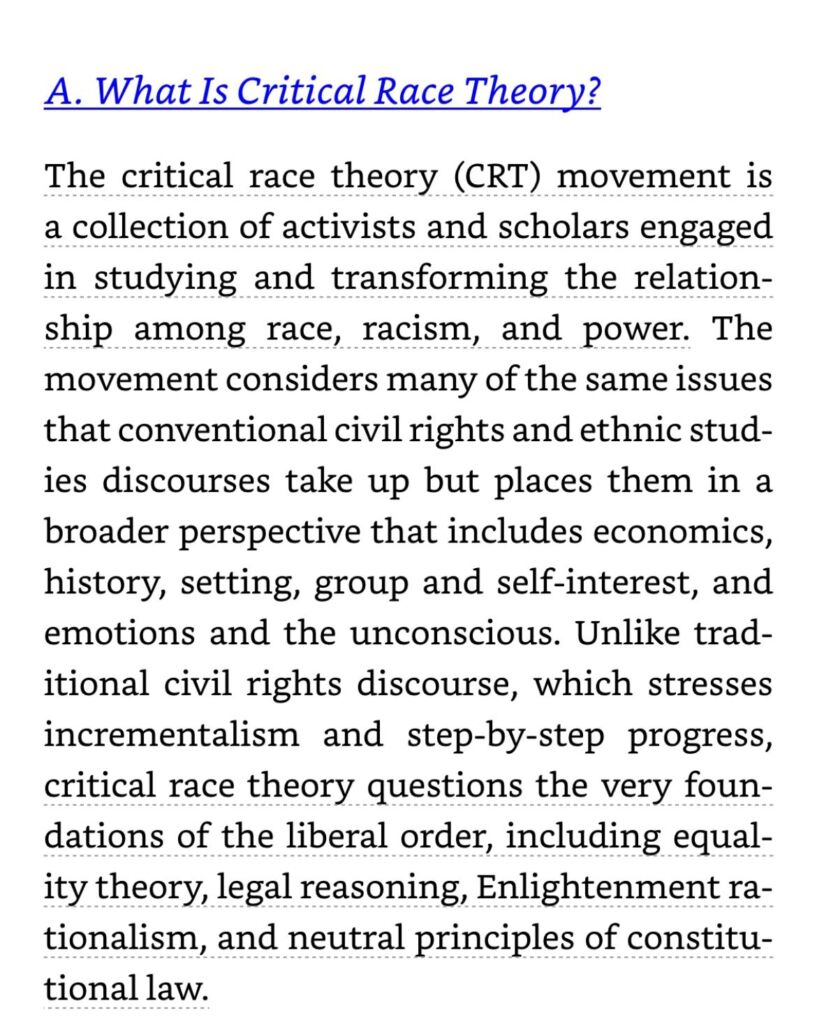What is Critical Race Theory?
Critical Race Theory (CRT) is pretty big news right now. Our Raise Our Standards tour which, among other things, examines attempts to insert CRT into Minnesota’s K-12 academic standards for social studies, has attracted over one hundred participants at each of its first nine stops.
And yet, while a recent poll for YouGov finds that 64 percent of Americans have heard at least “a little” about CRT, that same survey shows that only 54 percent of them know what it is.
I confess, I include myself in this 54 percent. I have enough on my hands with Minnesota’s economy to get involved in CRT, and the issue is, in any case, in the more than capable hands of my wonderfully talented — and brave — colleague, Catrin Wigfall.
But when people start getting busted at your events you probably ought to devote a little thought to the matter. In its coverage of last night’s events in Moorhead, the Fargo Forum wrote:
A physical altercation ensued the evening of Tuesday, June 15, after protesters spoke out as a conference speaker discussed opposition to critical race theory, a school of thought intended to address systemic racism.
So CRT is merely intended to “address systemic racism”? Doesn’t sound so bad, does it?
But rather than take the Fargo Forum‘s word for it, I decided — novice that I am — to see how CRT’s practitioners define it. One of the founders of CRT is Richard Delgado who, along with Jean Stefancic, authored the textbook Critical Race Theory: An Introduction, surely a good place to start.
Here is how they define it:

(H/T Matthew Yglesias)
Now, this clearly goes some way beyond simply addressing “systemic racism.” To repeat, according to its founders in one of its key texts, CRT is opposed to:
…the very foundations of the liberal order, including equality theory, legal reasoning, Enlightenment rationalism, and neutral principles of constitutional law.
Now, you may agree with this or you may not, but you do have to be honest about it. You cannot in honesty say that CRT is simply about addressing systemic racism when it is, in fact, and according to its founders, about a fundamental challenge to “the liberal order” in the United States. The media certainly should take CRT’s founders at face value and stop credulously parroting the anodyne, false, formulations put out by its activists.
Another one of the foundations of our liberal order is robust public debate. We can only have this if we are honest about what it is we are debating.
John Phelan is an economist at the Center of the American Experiment.